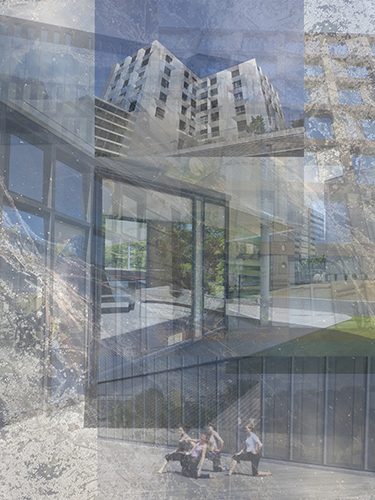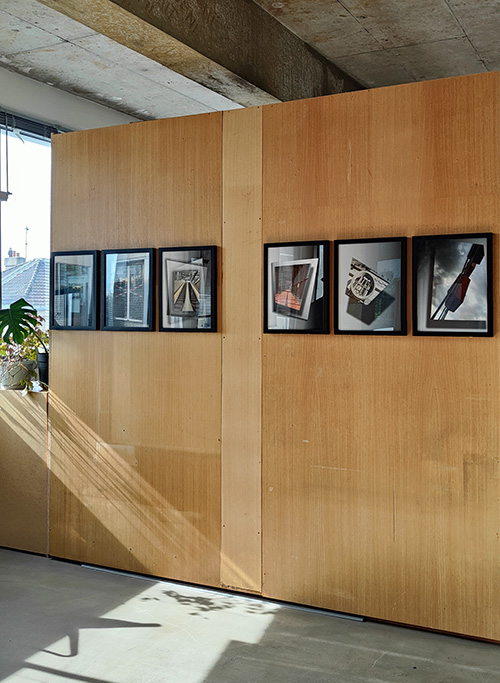Occupy the Sky
performative conference and design fiction experience, Art & Sciences Symposium, Cité Internationale des Arts, 2019
International symposium « Garden The Sky Water », organized by Ecole Polytechnics and ENSAD joint Art & Sciences research chair, at Cité Internationale des Arts, Paris, June 2019.
Symposium program: https://yakari.polytechnique.fr/gsw/programhttps://yakari.polytechnique.fr/gsw/program
Series of 4 photomontages serving as a support for a performative conference and design fiction experience. Each photomontage allows us to visualize along the narrated story, a fictional future project which includes real stakeholders, especially organizations. These real-fake stories become thought-experiences of possible futures (design fiction principle). In each story is introduced a “solution” to collect cloudwater (theme of the symposium), following more or less acceptable stories.
One of the four projects is a Mesopolis, i.e. an urban and ecosophic utopia imagined by Raphaële in another context, and taking this time the form of a village floating in the air in the desert in Egypt.
See other forms and apparitions of the Mesopolis at Atelier Martel Architecture in 2013 and in the Bad to the Bone review in 2021.
About Mesopolis Lab
Mesopolis Lab is one of LIID Future Lab’s research threads looking at how to design new urban utopias to inspire human action and territorial transformation.
The lab started in 2011 with initial research on the future of the City of Tehran, through an approach combining urban design, ecology, and art. The Mesopolis concept emerged from the idea to see it as a live and entangled milieu (meso) and to promise it an “ecosophical” future – i.e., according to Felix Guattari who coined that term, mixing three forms of ecology, natural, social and mental -, thus allowing to address as much its material, sensorial and human dimensions as its cognitive, informational and imaginary layers – a specificity of LIID Future Lab core approach.
In front of the extreme pollution of this concrete intensive metropolis, this ambition was manifestly a utopia, i.e., a purely conceptual urban model, and so we decided to make it travel, to explore how it could be embodied in other parts of the world.
The following lab research steps consist in conducting design fiction experiments to test possible versions of a Mesopolis utopia, and to deepen its theoretical relevance in regards to current urban reflections (resilience, mesology, generative city, learning city, creative city, smart city, etc.).




